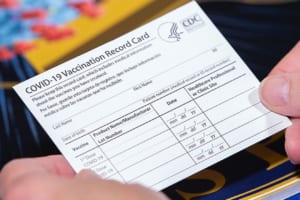In late 2021, our client (Joe), a U.S. citizen married his Philippines citizen wife (Jane) through an online marriage under the laws of the State of Utah. Following the marriage, Joe filed a Form I-130 Petition for Jane.
After completing the United States Citizenship and Immigration Services (“USCIS”) adjudication process and the National Visa Center (“NVC”), Jane was scheduled for her immigrant visa interview at the U.S. Embassy in Manila. Following the interview, Jane was issued a lengthy 221g refusal requesting for a number of documents which in our professional opinion, was unnecessary. One of those documents was a Philippines Report of Marriage Abroad (“ROM”). A ROM is issued when a Philippines citizen is married abroad and wishes to register his or her marriage with the Philippines government in order to receive marital benefits. However, in order for a ROM to be processed and have the marriage recognized by the Philippines government, the foreign marriage must be valid under Philippines law. Certain marriages solemnized abroad such as same-sex marriages or marriages between first cousins are not recognized under Philippines law. Thus, even if the marriage is lawful in the country where the ceremony was performed, a ROM may not be available.
At the time of publishing this article, a ROM is not a required document for immigrant visa processing either by USCIS, NVC or the Embassy’s Immigrant Visa Unit.
In Jane’s situation, she was previously married to a foreign national and later divorced in the foreign national’s home country. In order for her subsequent marriage to Joe to be recognized under Philippines law which would allow her to have a ROM issued, she would have first had to obtain a Judicial Recognition of Foreign Judgment for her foreign divorce prior to her marriage to Joe. Since Joe and Jane were married under Utah law and not Philippines law, our legal team engaged with repeated correspondence with the Embassy’s Immigrant Visa Unit explaining that in addition to a ROM not being required, Jane was ineligible to receive a ROM because her divorce to her foreign spouse did not undergo judicial recognition. In addition, because Joe and Jane were not married under Philippines law, a ROM was immaterial.
Following our successful outreach and legal reasoning, the Embassy’s IV Unit rescinded the ROM request which resulted in Jane receiving her immigrant visa.
For more information, contact us at info@enterlinepartners.com and speak with a U.S. immigration attorney in Ho Chi Minh City, Manila and Taipei.
ENTERLINE & PARTNERS CONSULTING
Ho Chi Minh City, Vietnam Office
146C7 Nguyen Van Huong St, Thao Dien Ward,
District 2, Thu Duc City
Ho Chi Minh City, Vietnam
Tel: +84 933 301 488
Email: info@enterlinepartners.com
Facebook: Enterline & Partners – Dịch vụ Thị thực và Định cư Hoa Kỳ
YouTube: @EnterlineAndPartnersConsulting
Website: http://enterlinepartners.com
Manila, Philippines Office
Tel: +63 917 543 7926
Email: info@enterlinepartners.com
Facebook: Enterline and Partners Philippines
Website: https://enterlinepartners.com/language/en/welcome/
Copyright 2024. This article is for information purposes only and does not constitute legal advice. This article may be changed with or without notice. The opinions expressed in this article are those of Enterline and Partners only.








